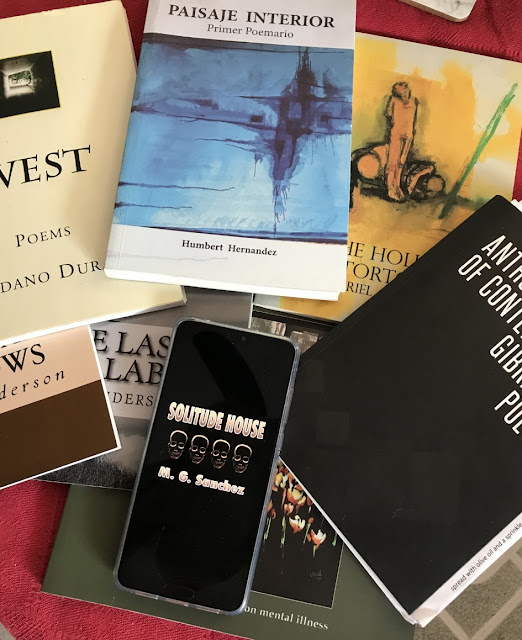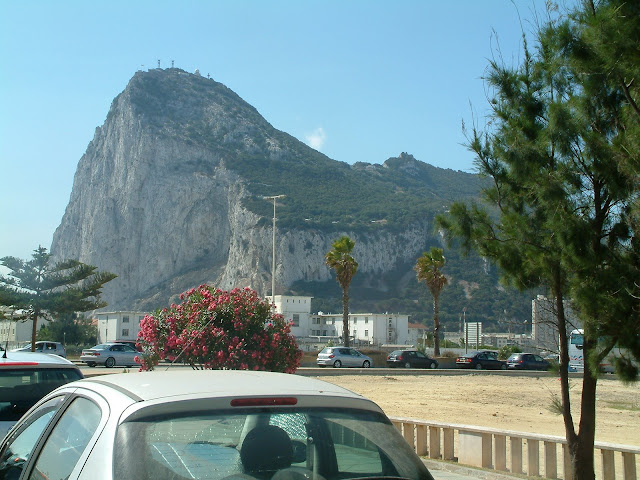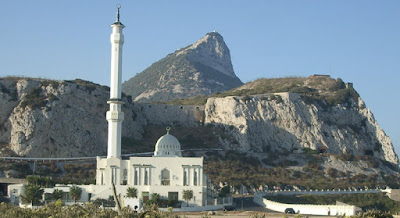 |
| By the Christmas fireside |
A few years ago, someone, somewhere not too far from where I now sit typing these lines, declared that there was no such thing as Gibraltarian literature. Well, that sparked off an outpouring of well-argued and well-written remonstration. If I recall correctly, and my powers of recollection are not great these days, I chipped in to this local debate. Of course there was a Gibraltarian literature. Young, and not particularly voluminous, but it was there, and just waiting for the talent lurking in the shadows of this unique city to feel confident enough to emerge. It wasn't even nascent, as someone sought to deem it. It simply was.
Fast forward to December 7th 2024, to City Hall, where Christmas festivities included a story telling session for kids, a writing workshop and a fireside chat with a panel of three, two of whom (myself included) were published writers and one of whom really should go ahead and write her own book (preferably including some of her recipes for mouth-watering cakes).
"Haven't we come a long way in terms of writing?" said one person at the writing workshop.
"Definitely," said another, "I get the feeling we're standing at the brink of a huge...resurgence I was going to say, but it's not a come-back, it's a starting point."
"You can sense the rocket boosters have been lit and the take off has begun," said another, "it will just accelerate into orbit from here."
I guess in a roomful of writers we were going to get all manner of analogies and metaphors.
There is definitely a sense of uplift when it comes to the art and craft of writing in Gibraltar. The past couple of years have seen an increasing number of publications, including poetry anthologies and the remarkable Patuka Press literary journals, there have taken place several well-attended and constructive writing workshops, the prize funds for the annual short story and poetry competitions have been increased and the government-sponsored writers' initiative to support a young writer through to publication of a piece of work is going strong. Gibraltarian playwrights are having their plays performed abroad, this year's Literary Festival included a day-long workshop given by Dr Sarah Burton and Prof. Jem Poster, both published authors from Cambridge University, and there is a rumour that a link has been made between the Government and a publishing company to help Gibraltar writers submit work through the traditional publishing route.
There is a growth in confidence among Gibraltar writers, a sense that it is worth the long hours of mulling and scribbling, deleting and starting again, frustration and elation that is all part of producing a reasonable piece of writing. There is also the added element of a newly-found sense of release that writing in llanito is also part of our culture and just as valid as literature as writing in either English or Spanish, and we have had works, including two poetry collections by Jonathan Teuma, published in the past year or two. As I have said in previous posts, there is still much more to be done, and there needs to be effort by everyone who wants to see writing elevated to stand shoulder to shoulder with other art forms. Writers need the support of government at times, but can and should also work together at independent initiatives at others, just as Patuka Press has done.
 |
| "The Upper Town" is the latest issue of Gibraltar's first literary journal by Patuka Press |
"The Upper Town" is available from Amazon - treat yourself to a copy by following the link below:
I find this all very heartening. As a writer, my greatest boost and still my source of support and inspiration is a writers' group, the Medway Mermaids, that I first joined in 2006. I am still a mermaid, much to my grandchildren's bewilderment, and I meet my fellow mermaids online once a month. We share and critique each other's work, we offer help and support and gentle tips for improvement, and we organise (or rather, our wonderful head mermaid, Sue, organises online workshops given by experienced writers, from published poets, to novelists, to creative non-fiction writers. I love attending workshops. These are my perfect excuse to exit the day to day world that distracts me far too much from writing, and focusing on doing what I love. It's also a way for this introvert to get out and meet people with a similar interest. One day it will bear fruit, I tell myself.
This weekend's workshop at City Hall was run by Melissa Bossano and was attended by some lovely people, some of whom I know and whose work I admire and some I have never met before but felt privileged to meet. I hope to be reading some of their incredible writing soon. Melissa helped us tap into our sensory perceptions of winter, and to link this as much to character as to setting. We all know from English lessons how Dickens used the depths of winter to introduce the harshness of Scrooge's character, but these techniques are harder to put into practice than they are to read and it is these small moments in a workshop that go such a long way to improve your own writing.
We also worked on memories, finding ways to recall moments in our own lives that would inform, colour or inspire new work, from poems and pieces of fiction to writing of memoir and adding colour to non-fiction. I don't think I was the only one to leave City Hall with the seed of a story idea that had been sown in that workshop, so thank you Mel!
The current project, because I've become a bit of a seasonal writer, is to add to my collection of short Christmas stories. But don't fear, I will be back to writing ghost stories again shortly after New Year - I wouldn't want to be away from ruminating on the dark and terrifying for too long.
As for the fireside chat, it was plain fun, chatting about Christmas traditions with Sharon Garcia, the talent behind 'Piece of Cake' bakery (their cups of tea and slice of apple pie are just the best afternoon treats) and Manolo Galliano of the Gibraltar Heritage Trust, who has just released his latest book "Pan Dulce and Mince Pies". Afterwards we tucked into Sharon's pan dulce (que bueno!) and some mulled wine.
A lovely start to a weekend that has continued with my dipping into the latest Patuka Press journal, "The Upper Town" which has just arrived at the bookshops and ordering "Luciano", Humbert Hernandez' novel, launched just a few days ago. As I said at the start of this post, Gibraltarian literature has switched up a couple of gears. As the year comes to a close, the future of writing in Gibraltar is looking brighter than ever.
 |
| "Pan Dulces and Mince Pies" by Manolo Galliano and photography by Victor Hermida |







































